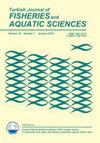水产养殖中抗微生物耐药性(AMR)和对抗AMR的替代策略
IF 1.7
4区 农林科学
Q3 FISHERIES
引用次数: 0
摘要
食品生产系统中的抗微生物耐药性(AMR)被认为是对公共健康和营养安全的主要威胁。由于水平基因转移的潜力,水产养殖中的AMR最终可能传播到环境中发现的临床重要菌株,从而影响人类健康和整个生态系统。了解水产养殖中AMR的驱动机制,包括质粒、整合子和基因盒,对于制定AMR风险管理策略至关重要。这篇综述文章对水产养殖中的AMR及其对公众健康和环境的潜在风险进行了深入分析。这篇综述通过深入研究导致AMR传播的分子和遗传因素,全面了解了AMR的复杂性。它还强调了不同国家的抗生素使用模式。文章还阐述了在不对环境产生负面影响的情况下可以采取的预防和控制鱼类疾病的替代策略。这种理解可能有助于制定旨在阻止AMR传播和保障公众健康的计划。审查中讨论的各种替代方法可以为以对生态系统和公众健康既有效又环境安全的方式控制鱼类疾病提供潜在的解决方案。本文章由计算机程序翻译,如有差异,请以英文原文为准。
Antimicrobial Resistance (AMR) and Alternative Strategies for Combating AMR in Aquaculture
Antimicrobial resistance (AMR) in food production systems is regarded as a major threat to public health and nutrition security. Due to the potential for horizontal gene transfer, AMR in aquaculture might eventually spread to clinically important strains found in the environment, thereby affecting human health and the whole ecosystem. It is essential to comprehend the mechanisms driving AMR in aquaculture, including plasmids, integrons, and gene cassettes, to develop AMR risk management strategies. This review article presents an in-depth analysis of AMR in aquaculture and potential risks it presents to public health and the environment. The review provides a comprehensive understanding of the complexities of AMR by delving into the molecular and genetic factors that contribute to its spread. It also highlights the antibiotic usage pattern in different countries. The article also elaborates on alternative strategies that can be adopted to prevent and control fish diseases without negatively impacting the environment. This understanding may aid in the development of plans aimed at halting the spread of AMR and safeguarding public health. The various alternative approaches discussed in the review can offer potential solutions for controlling fish diseases in a manner that is both effective and environmentally safe for ecosystems and public health.
求助全文
通过发布文献求助,成功后即可免费获取论文全文。
去求助
来源期刊

Turkish Journal of Fisheries and Aquatic Sciences
FISHERIES-MARINE & FRESHWATER BIOLOGY
CiteScore
3.10
自引率
0.00%
发文量
43
审稿时长
3 months
期刊介绍:
Turkish Journal of Fisheries and Aquatic Sciences" (TrJFAS) is a refereed academic journal has been published by Central Fisheries Research Institute of Turkey and Japan International Cooperation Agency (JICA), and published in English.
It aims to address research and needs of all working and studying within the many varied areas of fisheries and aquatic sciences.
The Journal publishes English language original research papers, critical review articles, short communications and technical notes on applied or scientific research relevant to freshwater, brackish and marine environments.
TrJFAS was published biannually (April & November) between 2001 and 2009. A great number of manuscripts have been submitted to the journal for review from acceptance of the SCI index. Thereby, the journal has been published quarterly (March, June, September and December) from 2010 to 2017. The journal will be published monthly in 2018.
 求助内容:
求助内容: 应助结果提醒方式:
应助结果提醒方式:


